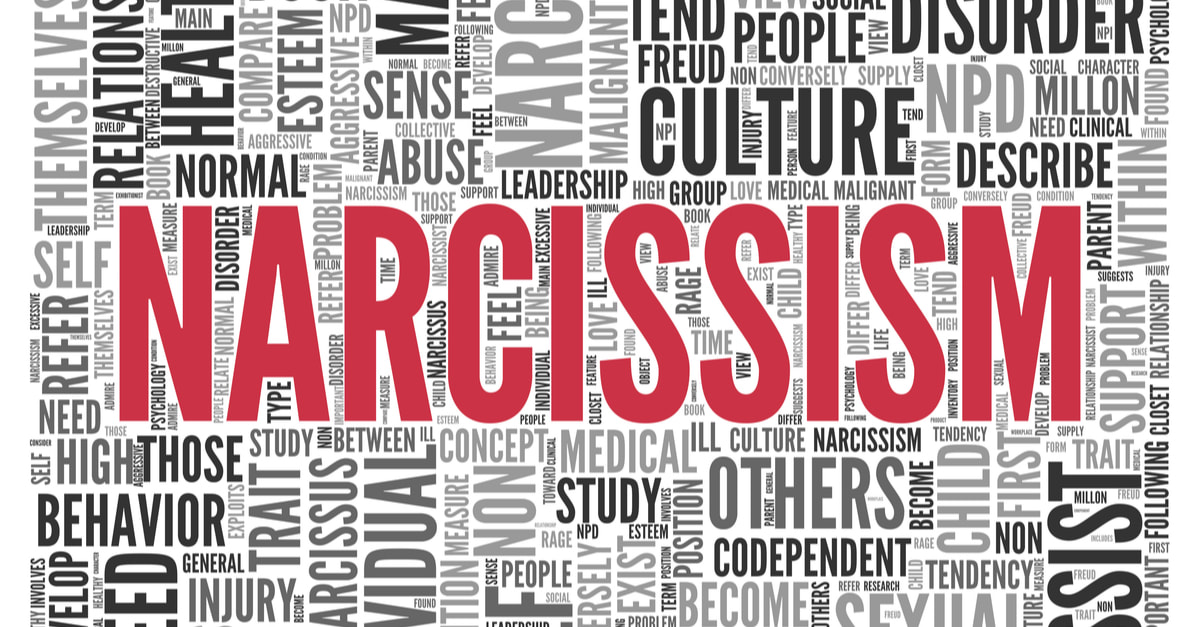|
By: Tamara Ince Jim Crow Laws and the legal segregation and discrimination that continued through the 1950’s may seem like ancient history, yet racism and oppression still exist and affect your financial prosperity, outward persona, feeling of safety, degree of acceptance in groups, self-confidence, personal image, health and ability to form vulnerable relationships with people from other races and cultures. It even affects how you see yourself fitting in society. Is there any wonder why minorities may seem edgy or defensive? Minorities not only face everyday stresses and anxieties, by they also face the impact of oppression and racism. The 2017 events at the U.S. Air Force Academy’s preparatory school in Charlottesville, Virginia, where racial slurs were written on black students’ doors shows that racism, both overt forms and microaggressions can have a toxic impact on the mental health of individuals. Microaggression, a term Chester M. Pierce, a Harvard Psychiatrist, used in 1970, originally referred to the insults and dismissals of African Americans by non-African Americans. However, psychologist Derald Wing Sue later defined it as “brief everyday exchanges that send denigrating messages to certain individuals because of their group membership.” For minorities, these microaggressions may come in the form of media and societal perceptions. There is a great body of evidence showing how microaggression can cause or contribute to mental health issues, including personality disorders, anxiety, stress, drug addictions, food addictions, abnormal obsessions, depression, anger, avoidance, intrusion, hypervigilance and low self-esteem, as noted in research from Columbia University. Physicians have found that microaggression contributes both directly and indirectly to mental health challenges because it can cause high levels of stress hormones in the bloodstream for extended periods of time, which causes wear-and-tear on the body. Moreover, research shows that perception of microaggression is associated with a reduced or inability to trust others, fewer opportunities at work and school, increases in unhealthy behaviors, and poor relationships. Microaggression can cause the destruction of unions, which are already challenging to maintain. Yet, few get help because talking about or admitting mental health concerns has been considered taboo in many minority groups. Don’t let stigmas create self-doubt and shame, your condition is not a sign or weakness, nor is it something you should be able to control on your own. Don’t isolate yourself, there are people who can help. Get professional help. At Ince Counseling, we are seeing that an increasing number of minorities are realizing the benefits of accessing mental health resources and processing traumas through counseling. In particular, we have seen a significant number of minority men seeking help. Together we can work to minimize the physical and psychological harm of microaggression through increased awareness of one’s own biases, understanding of societal biases, increased understanding of the nature and impacts of microaggression, and focused guidance. If you are suffering from overt or microaggression, or if you are an advocate that is exposed to discrimination or works with discrimination, we suggest you partner with a professional to help you process your traumas, to help you cope better, to guide you to healthier choices for dealing with issues, and to empower you to better process the impact of discrimination. If you find your relationships, success, life, or person being negatively impacted by mental health challenges, please contact Ince scheduling team at 1-833-968-8255 for help now. You can also find support and get questions answered through:
References: Carter, Robert T., and Amy L. Reynolds. "Race-related stress, racial identity status attitudes, and emotional reactions of Black Americans." Cultural Diversity and Ethnic Minority Psychology 17.2 (2011): 156. Constantine, Madonna G., et al. "Racial microaggressions against Black counseling and counseling psychology faculty: A central challenge in the multicultural counseling movement." Journal of Counseling & Development 86.3 (2008): 348-355. DeAngelis, Tori. "Unmasking Racial micro aggressions'." Monitor on Psychology 40.2 (2009): 42. Hernández, Pilar, Mirna Carranza, and Rhea Almeida. "Mental health professionals' adaptive responses to racial microaggressions: An exploratory study." Professional Psychology: Research and Practice 41.3 (2010): 202. Nordmarken, Sonny. "Microaggressions." Transgender Studies Quarterly 1.1-2 (2014): 129-134. Sue, Derald Wing, et al. "Racial microaggressions in everyday life: Implications for clinical practice." American psychologist62.4 (2007): 271.
1 Comment
By: Tamara Ince World renowned physician and researcher Sir David R. Hawkins, M.D. Ph.D. found that “disease is an expression of one’s attitude and habitual ways of looking at things.” Prolonged exposure to negativity and trauma can disrupt your nervous system and contribute to anxiety, cardiac problems, insomnia, emotional flooding, digestive issues, and more. However, affirming love, whether it is self-love or love from others, heals. Not only can love heal people emotionally and mentally, published research articles from Anand, Daykin, Garland, Greenlee, Zebrack and others have shown that, when integrated into treatment plans, love can help heal medical ailments, even supposedly terminal ailments such as cancer. For example, Stamatis Moraitis was diagnosed with terminal lung cancer and told treatment could not save his life. He skipped treatment and went home to bask in the love of his wife and old friends. Over twenty-five years later he was still alive, feeling better than ever, farming a vineyard, and living to 102. Small acts like a mother kissing an injured toddler, a family providing a supportive loving environment, or simple acts of kindness by people, who you feel have your best interests at heart, can reduce or eliminate the effects of physical and mental pain and illness. Yes, logically a kiss should not be able to remove pain, but distributed love actions do have a placebo effect, as noted in the research by Esch. Just think back of how, when you felt like the world was collapsing around you, after receiving a simple text or e-mail from a loved one the day or your motivation to push on instantly improved. Alas, as we progress through life and our career, things become more complicated and we lose our core support network. As Maya Angelou noted in Touched by an Angel, we can end up living “coiled in shells of loneliness”. This is why it is critical for people to build out their support network as they age, so they can bring more love into their life so, in Angelou’s words, it can come “into our sight to liberate us into life.” How do you pursue and support healing love? If you are not in a partnering relationship, you can reach out and connect with colleagues at work, volunteer activities, group sports, travel, or support groups. You can also adopt a pet (aka emotional support animal) or plan activities to reconnect with friends or family. If you have a partner, try putting more effort into positive communication, seeking understanding, being supportive, sharing needs and wants, finding balance and win-win solutions, being present and accountable to your partner, and just showing up to provide support wherever and whenever your partner needs it to help them grow and excel. Let’s celebrate Valentine’s Day. I encourage you to pursue love in all forms, so that you have the physical and mental support you deserve and need to continue to grow and reach your full potential. If healthy love alludes you, contact us at Ince Counseling, 1.833.968.8522. In honor of Valentine’s Day, this February through mid-March, we are offering a limited number of discounted rate (Special Pricing) for singles and couples interested in Relationship Consulting. Let’s make sure your February is full of love. References: Brecher, Edward M. "Love sex and aging." (1983). Breitbart, William, et al. "Pilot randomized controlled trial of individual meaning-centered psychotherapy for patients with advanced cancer." Journal of Clinical Oncology 30.12 (2012): 1304. Brockmann, Hilke, and Thomas Klein. "Love and death in Germany: The marital biography and its effect on mortality." Journal of Marriage and Family 66.3 (2004): 567-581. Daykin, Norma, Stuart McClean, and Leslie Bunt. "Creativity, identity and healing: participants' accounts of music therapy in cancer care." Health: 11.3 (2007): 349-370. Ellsberg, Mary, et al. "Intimate partner violence and women's physical and mental health in the WHO multi-country study on women's health and domestic violence: an observational study." The Lancet 371.9619 (2008): 1165-1172. Esch, Tobias, and George B. Stefano. "Love promotes health." Neuroendocrinology Letters 26.3 (2005): 264-267. Garland, Sheila N., et al. "A non-randomized comparison of mindfulness-based stress reduction and healing arts programs for facilitating post-traumatic growth and spirituality in cancer outpatients." Supportive Care in Cancer 15.8 (2007): 949-961.
By: Tamara Ince Since the days of ancient Babylon, around four thousand years ago, people have made New Year’s resolutions. During their massive 12-day festival, the Babylonians made promises to the gods to pay their debts, return borrowed objects, and make life changes. These promises over the years evolved into New Year’s resolutions. This practice continued throughout ancient Roman. Then the early Christians modified it, when they commenced the tradition of thinking about one’s past mistakes and resolving to make changes in the future every Jan. 1. Despite its secular origin, it has now become commonplace. Approximately 45% of Americans say they make New Year’s resolutions, according to recent research. However, only about 8% are successful. Out of those that are successful, according to research by Norcross et. al, approximately 53% had at least one slip. With such a dismal success rate, despite having over 4,000 years to perfect the art of New Year’s resolutions, I challenge you do embark on a new way to set 2019 goals. Instead of setting a New Year’s resolution and waking up a year later with a failed resolution and an unchanged life, I challenge you to actively implement steps to navigate 2019 based on a mission statement. A mission statement can be developed around a habit you would like to break, a goal (such as purchasing a home or earning a degree), or a result you would like (such as better relationships). Once you have created your mission statement, you can develop an action plan on how to achieve the mission, with time-based goals. For example: Mission Statement for a Couple: To refocus on our union and better support intimacy in 2019 Action Plan: Quarterly: Plan a trip to experience a new environment, learn, review quarterly progress, laugh together, and enjoy rest and relaxation Monthly: Devote 1 day a month for a couples convention to discuss or revisit any concerns that have surfaced during the month and share potential resolutions. Embrace at the end of the day Weekly: Engage in at least one unprompted act of kindness When crafting your mission, do be specific about what you want, make it achievable, (for example no one is perfect, so having a mission to be the perfect spouse is unachievable), realistic (for example you know how many hours you have for your action plan so don’t plan more than you have time to do), and timely (set time periods for actions and deadlines for your mission). Developing and implementing a mission statement will help you focus on the important aspects of your life and increase the odds that you will wake up January 1, 2020 happier and more successful. Research has shown that mission statements can draw people together towards common goals, give hope for a better future, inspire couples and individuals to achieve their dreams through effective actions, convert broad dreams into an action-oriented roadmap to success, and empower people to maintain focus despite distractions. Let’s work to turn your visions and dreams into your realities. Resources to jump start you are: Planning Tools
Time Management Tools
References: Basil, Michael D., Debra Z. Basil, and Caroline Schooler. "Cigarette Advertising to Counter New Years Resolutions." Journal of health communication 5.2 (2000): 161-174. De Vet, Emely, et al. "Ain’t no mountain high enough? Setting high weight loss goals predict effort and short-term weight loss." Journal of health psychology 18.5 (2013): 638-647. Doran, James, Danling Jiang, and David Peterson. "Gambling in the New Year? The January idiosyncratic volatility puzzle." Unpublished working paper, Florida State University (2008). Ellis, Albert. "Rational-emotive therapy and its application to emotional education." Paper delivered at the 17th International Congress of the International Association of Applied Psychology, Liege, Belgium. 1971. Heffernan, Margaret. "Changing the game." Prowess Conference. Vol. 3. 2003. Liebert, Robert S., and John M. Oldham, eds. The middle years: New psychoanalytic perspectives. Yale University Press, 1989. Marlatt, G. Alan, and Burt E. Kaplan. "Self-initiated attempts to change behavior: A study of New Year's resolutions." Psychological Reports 30.1 (1972): 123-131. Moore, Ann, and Gwendolen Jull. "New years resolutions and personal and professional development 2006." Manual therapy 11.1 (2006): 1. Nelissen, Rob MA, Emely de Vet, and Marcel Zeelenberg. "Anticipated emotions and effort allocation in weight goal striving." British journal of health psychology 16.1 (2011): 201-212.
By: Tamara Ince Society, spouses, and friends often expect men to be strong, successful, in control, problem solvers, bread winners, and the one who steps up when life falls apart. This causes men to suffer and even die from mental health challenges in silence. Every 20 minutes in the United States a man commits suicide, according to the American Foundation for Suicide Prevention. Based on research by Dr. Nock, 3 out of every 4 US suicide victims are men. Around the world, men are up to 7.5 times more likely to kill themselves than women, according to Nock. Möller-Leimkühler found men are more successful than women at killing themselves on their first suicide attempt with few warning signs. Unlike men, women often show signs. It is common for women to talk daily about their problems, share their thoughts and emotions with friends, go to support groups, confide in family and give warning signs when they are overwhelmed or suicidal. Often these conversation can even have therapeutic value. Men are commonly taught not to do any of this, so often no one knows when their male loved ones are in crisis. The men just hold it in and then resort to suicide or unhealthy coping mechanisms. Unhealthy coping techniques, such as substance abuse, are three times more common in men than women. Being intoxicated or under the influence of drugs can increase risk of suicide because inhibitions are decreased, while levels of aggression and depression increase. Similarly, men may develop addictions, such as over-eating, gambling, and sex, and even become unfaithful in an effort to cope with life. How do we empower our men to become leaders and excel? “Education is the key” noted author Michael Baisden in his book Men Cry in the Dark. No longer is participation in therapy considered a sign of weakness or failure for men. In fact, to reach their potential, men need to have access to emotional support, healing activities, healthy relationships, and education on emotional and mental health. Activities such as 30 minutes of reading can significantly reduce stress, heart rate, and blood pressure, according to Dr. Rizzolo, just. So, as you learn, you can relax. Here are some books to start with.
healthy coping techniques, and strengthen their relationships with their children, partners, family, friends and colleagues, as noted by Haig, Massenzio, and Yardy. Do you or someone you love struggle handling life? Now is the time to seek help so he can take charge of his thoughts and emotions. Half of Ince Counseling’s clients are men, a testament to the fact men need to and are taking their mental health seriously. Would you like to partner with Ince Counseling? Start by contacting our scheduling team at 1.833.968.8255. References: Baisden, Michael. Men Cry in the Dark. Baisden Pub., 2013 Möller-Leimkühler, Anne Maria. "The gender gap in suicide and premature death or: why are men so vulnerable?." European archives of psychiatry and clinical neuroscience253.1 (2003): 1-8. Nock, MK, Borges, F, Bromet EJ, et al, “Suicide and suicidal behavior”, Epidemiological Review (2008) 30:133-154. Rich, Charles L., and Gary M. Warsradt. "Suicide, stressors, and the life cycle." The American Journal of Psychiatry 148.4 (1991): 524. Rizzolo, Denise, et al. "Stress management strategies for students: The immediate effects of yoga, humor, and reading on stress." Journal of College Teaching & Learning 6.8 (2009): 79-88. Robins, Eli, et al. "Some clinical considerations in the prevention of suicide based on a study of 134 successful suicides." American Journal of Public Health and the Nations Health 49.7 (1959): 888-899. Runeson, Bo, et al. "Method of attempted suicide as predictor of subsequent successful suicide: national long term cohort study." Bmj 341 (2010): c3222. “Suicide Statistics.” AFSP, American Foundation for Suicide Prevention, afsp.org/about-suicide/suicide-statistics/ Accessed October 17, 2018.
By: Tamara Ince As a little girl she put pink ribbons in her hair and dreamed of the future. She planned to grow up and become a doctor or a movie star. She held no fear of the future. That was before she met John. He was handsome, often kind, and the love of her life. Yet, he experienced moderate to severe depressive episodes, and this touched every aspect of not only his, but also her life. The effect of caring for him caused her to live in a virtual cage and neglect her dreams. His moods dictated her behaviors, activities, and forced her to limit both her growth and the depth of her life. She could not even spend time with her family or go to college, because it would upset him. He would threaten to kill himself if she left, so she felt like she had no choice but to sacrifice her quality of life for his life. Then, one day she asked herself “Why am I fearing the future?”. She made the decision after much thought to leave him. To her surprise, he did not attempt suicide. More importantly, she began to live again. She once more found personal growth, joy, and love. Sometimes, if your partner has a mental diagnosis and will not seek help, the best thing to do is strategically vet other options, including seeking emotional support for yourself. Sometimes, it does hurt to love, and just as much to exit such a relationship, especially in cases in which the non-offending partner has his/her co-dependency concerns. However, research has found that people who have either parents or a significant other with Obsessive Compulsive Disorder, Borderline Personality Disorder, Bipolar Disorder, Intermittent Explosive Disorder, Depression, severe Anxiety Disorder, Substance Use Disorders, PPMD, PTSD, sever cases of ADHD/ADD, or other mental disorders that are untreated likely endure pain and suffering similar to those in physically abusive relationships. They may be constantly and systematically controlled from fear of upsetting their parent or partner. Constantly walking on eggshells, analyzing their every word choice, and isolating themselves from friends and family in efforts to avoid setting off their partner can weigh heavily on their own mental health and quality of life. People in emotionally abusive situations may find that they are constantly avoiding activities they enjoy in order to prevent conflicts. Typically, they can not even voice their thoughts or opinions, because that could set off their loved one. This constant internalization of feelings, analysis, and avoidance can undermine a person’s confidence, worthiness, growth, trust, and even life. One option is to get professional mental help for the ill person, another would be to seek support for yourself to mitigate the impact. However, this is not always an option. Sometimes people will refuse treatment and you need to realize that you can not help them, as such is beyond your capacity, or readiness. Instead, you need to start helping yourself live a better life. This article is not to convince you to leave a toxic relationship - only you can decide your capacity, or readiness. This article is simply suggesting that you strategically weigh out your options, and in most cases seek out a professional to partner with as you flush out the feelings associated with detaching and doing such safely. If you feel that you are drowning in a toxic relationship, and your loved one refuses to begin the process of seeking out help, it is not like things can never change. You can exit the relationship, thrive, and get stronger. Things can get better. References: "Emotional Abuse in Children." World of Psychology. Psych Central, 27 Dec. 2016. Web. 24 May 2017. "Psychological abuse." Wikipedia. Wikimedia Foundation, 15 May 2017. Web. 24 May 2017.
By: Tamara Ince Not everyone has read Men Are from Mars and Women are from Venus, but everyone, who has talked to someone of the opposite gender, easily understands what the title means. A typical example can be seen at a dinner table. A wife or girlfriend starts talking about a problem she is having. The husband, or boyfriend tries to give helpful advice and aid her in solving it. Suddenly arguments arise with screaming, “you just don’t understand” and “I was trying to help; I won’t do that again.” The rift in this case, and perhaps in your relationship, is caused by differences in gender communication. Harvard psychologist Carol Gilligan noted that men and women may speak different languages that they assume are the same . . . creating misunderstandings which impede communication and limit the potential for cooperation.” Other research has noted that hormones can cause lateralization in the brain, which can lead to differences in communication among people of different genders. Furthermore, research shows that the traditional ways of raising boys and girls lead to differences in communication styles and usage of brain hemispheres for communication. In general the male brain hemispheres work more independently and the female brain hemispheres tend to work more cooperatively. Thus, as expected, men tend to be more traditionally strong and aggressive in their speech. Women tend to be more compassionate. Yes, the feminists who said we are all equal in all ways weren’t exactly right- we are socialized differently. We may all be able to accomplish the same things, but we tend to do it differently based on gender. Research in psychology, sociology, anthropology, linguistics, and biology all agree. Gender differences in communication are real and people experience them daily. However, we can bridge the gender gap and improve communication in our daily lives by:
Gender issues in communication start at birth and remain along on your life path and informed in all relationships- romantic, social, work, and family related. The process begins even before you draw your first breath, there are nursery planning discussions revolving around gender. So you need to understand them. It’s not hopeless, you can improve your communication and thus success with members of the opposite sex- in fact it’s a necessary skill set if you plan to maintain and sustain any long term relationship. If you are currently having challenges with your partner, a licensed therapist may be able to help you better understand gender communication and improve your relationship. References: Barrett, Mary, and Marilyn J. Davidson. Gender and communication at work. Ashgate Publishing, Ltd., 2007. Krolokke, Charlotte, and Anne Scott Sorensen. Gender communication theories and analyses: From silence to performance. No. 50. Sage, 2006. "9 Steps to Better Communication Today." World of Psychology. N.p., 06 Oct. 2009. Web. 07 June 2017. "Ohioline." Gender Issues: Communication Differences in Interpersonal Relationships | Ohioline. N.p., 25 Feb. 2010. Web. 07 June 2017. Wilkins, Brenda M., and Peter A. Andersen. "Gender differences and similarities in management communication a meta-analysis." Management Communication Quarterly 5.1 (1991): 6-35.
By: Tamara Ince A naturally beautiful girl, she ate large portions not because she was hungry or too busy to plan a healthy meal. She was overweight not because she hated working out or was too lazy to fit in a workout. Instead, she consciously and subconsciously sought to gain weight as a protective shield. As a young child, an uncle, whom she trusted, sexually abused her. He brainwashed her into thinking that it was her fault. She, like many victims of childhood sexual abuse, used weight to build a barrier to protect herself from future abuse. Since society promotes thin as in, it suggests that if you are overweight then people will ignore you and your body. In a sense, the victim of abuse believes that obesity will reduce their sexuality and make them safer. What is the correlation between becoming obese and having been sexually abused as a child? The answers vary from guilt to shame to a desire for comfort, protection, and safety. The trauma literally changes a person’s natural metabolism, brain biochemistry, and way of thinking as part of a human’s natural flight or fight response and ability to adapt. Studies have found that by 24 years of age, girls who were sexually abused were twice as likely to be obese than other girls. In another study, researchers conclusively found a link between lifetime obesity and sexual abuse, even after taking other variables, such as education, stress, age, and physical inactivity into account. Yet another study found that, as the number and severity of the sexual abuse went up, so did the risk for obesity. As anyone running an integrative practice is acutely aware, this is no surprise. Approximately 4O% of patients requesting weight loss help have histories of sexual abuse. Whether the weight is an intentional barrier or result of subconscious actions, or both of these, healing requires looking at how trauma impacts a persons metabolism and biochemistry. Trauma can lead to development of metabolic syndrome. This is a cluster of conditions that cause high blood pressure that limits physical abilities, glucose intolerance that contributes to decreased energy levels, and increased retention of fats contributing to abdominal obesity. Multiple studies have looked at how sexual trauma slows a human’s metabolism, a woman’s estrogen production rate, and a person’s biochemical makeup. In fact research projects by Dr. Bremner and others have shown that sexual trauma causes lasting changes in the brain and increased cortisol and norepinephrine responses. By contacting a nutritionist for a dietary assessment or primary care provider for a diagnosis and treatment plan; a victim of sexual abuse can overcome the negative impacts of their trauma. Additionally, many find comfort and health through sharing their experiences with a therapist or joining support groups. Victims are not alone; there is a multitude of welcoming support groups. Healing is possible. References:
By: Tamara Ince Does alcoholism seem like a great burden for adults? Imagine being raised by an alcoholic parent. Surrounded by chaos, uncertainty, changing personalities, constant arguments and perhaps even violence. Children in alcoholic household suffer trauma as severe as soldiers in combat. Often feeling isolated, they carry this trauma through life, allowing it to drag them down and limit them. However, they are far from along. Over 45% of Americans have alcoholism in their family and an estimated 26.8 million of these are children. Overcoming the trauma caused by a mother or father’s alcoholism is challenging because it occurred in an environment of denial. Alcoholism is “the family secret”, not to be shared with anyone. Children grow up learning not to trust, feel, or talk. Isolated they often have birthdays forgotten, special events missed, and live in fear of when their parents’ next violent outburst will happen. This trauma, like an albatross around the neck, follows a child to adulthood. In over 53% of adult children of alcoholics become alcoholics themselves, according to recent research. Since as children they are forced to suppress their emotions in order to survive they take this with them to adulthood. Furthermore, having been taught as a child to deny the reality surrounding them, as adults their childhood trauma causes them to avoid talking about important, urgent, and meaningful aspects of their lives. Having had no control as a child, they have control issues as adults. They suffer depression, anxiety, and compulsions. They fear that if they lose control, then they will become addicts themselves. This causes intimacy issues and can prevent development of meaningful relationships and cause marriages to disintegrate and friendships to be lost. Furthermore, they face increased risk of career failure and relationship failure due to their propensity to over react, a lesson taught by their traumatic childhood where every little think could be escalated to violence. Just as a soldier overcoming PTSD must take an emotional leap to heal, so does a survivor growing up in the war zone created by alcoholic parents. Adult children of alcoholics need to realize how to separate the past from the present. One way to do this is therapy. In therapy and support groups you can see that you are not alone. Many adult children of alcoholics fear emotions, even positive ones, such as having fun with their newborn son. A multitude of these survivors constantly seek to avoid conflict, thus react overly negative to constructive criticism and misinterpreting emotions thereby failing to experience personal grow as adults. Additionally, there are thousands of adult children of alcoholics that struggle due to low self esteem and constant approval seeking behaviors that make their lives harsh and cause people around them to feel physically and emotionally drained in their presence. In support groups and therapy you can see past your history and through trauma informed treatment likely stop the cycle of self-deprecation, compulsive behaviors, attractions to toxic people, emotional isolation, and more. You no longer have to live the life of a victim, you can live your life as a survivor of the trauma caused by those alcoholic parents. References:
By: Tamara Ince Jane jokes about how, when she first met Ryan, he said, “but enough about me, how do you feel about me.” At the time, she thought it was funny how he asked this after going on and on about himself for hours. Yet, years and tears later, she realized that she was trapped in a relationship with a narcissist. Not only was everything about him, but he also drained her emotionally with demands. By the time she escaped from living in his shadow, she had lost her sense of self worth and her mental health was tragically injured. Do you think that you are in a relationship with a narcissist? We are living in an increasingly narcissistic country. Statistics and science demonstrate that the “look at me” focus on social networks, such as Facebook, has contributed to an exponential increase in narcissists. The result is that many are stuck in relationships with partners or parents, where one person demands all your attention and makes you feel guilty when you share that attention with others, or even focus some of it on yourself. If your partner or parent engages in manipulative behaviors, plays games, interrupts you repeatedly, always need attention and affirmation, is easily slighted, reacts disproportionately to criticisms, always talks about themselves, and feels that they need to be the best and most important thing in your life, they may be a narcissist. These are the typical signs of a narcissist. Narcissists, only appear to care about you and your interests when doing so fulfills their needs or desires. If you were raised by a narcissist or are in a relationship with one, you will likely find that it causes you severe emotional distress. It can rob you of your sense of self worth, cause isolation, cause depressions and worse. If your partner is finding himself or herself unable to connect to others, having trouble with activities of daily living, having problems in relationships, or having trouble achieving goals, then it may be time for you to encourage the narcissist to seek professional help. When you think the person may need help, encourage him or her to have an evaluation. Mental health therapy can empower people overcome narcissist tendencies by recognizing and separating the self attacking, self aggrandizing, and self soothing attitudes of their inner voice. It can also help them differentiation negative from positive actions and develop a sense of compassion. Similarly, it may be time for you to seek mental help if you feel that you are developing self worth issues or drowning in negativity. A holistic treatment plan can help you develop corrective behaviors, build real self-esteem and not be defined by the narcissists in your life or the traits that attracted him or her to you. Ask yourself, does someone in your life exhibit the following symptoms:
References: All you need to know about Narcissists (n.d.). Retrieved July 16, 2017, from http://thenarcissisticlife.com/narcissistic-parents-impact-children Levy, K. N., Reynoso, J. S., Wasserman, R. H., & Clarkin, J. F. (2007). Narcissistic personality disorder. Narcissistic personality disorder Symptoms. (2014, November 18). Retrieved July 16, 2017, from http://www.mayoclinic.org/diseases-conditions/narcissistic-personality-disorder/basics/symptoms/con-20025568 Narcissistic personality disorder Symptoms. (2014, November 18). Retrieved July 16, 2017, from http://www.mayoclinic.org/diseases-conditions/narcissistic-personality-disorder/basics/symptoms/con-20025568 Raskin, R. N., & Hall, C. S. (1979). A narcissistic personality inventory. Psychological reports. Seltzer, L. F. (2015, July 28). This Is What Really Makes Narcissists Tick. Retrieved July 16, 2017, from https://www.psychologytoday.com/blog/evolution-the-self/201507/is-what-really-makes-narcissists-tick
By: Tamara Ince One night a girl was bored and messaged a guy on Instagram direct messenger. They chatted awhile and flirted. They then connected on Skype and hit it off. Dates followed and everything looked promising. Yet, the girl was scared, she didn’t let the guy lead. She didn’t share much of her background with him. Soon this lack of trust led to them breaking up. What could have ended up as an ideal match turned into a tragic love story? Whether you are scared or unable to trust due to childhood abuse, traumas, past infidelities or other issues, now is the time to overcome these. Although most never really give much thought about trust throughout the day, it affects every aspect of our love and personal lives. If you cannot trust, then you may never be able to enjoy the full range of joys achievable from an intimate and healthy relationship with another. Experts from both Redeemer University College and Northwestern University have conducted research of trust in undergraduates’ relationships. They concluded that those in the most trusting relationships also expressed greater intimacy and joy. Furthermore, those with greater trust were able to better handle the inevitable challenges that pop up in relationships. With the help of a licensed therapist, you can overcome the past and learn to trust and improve your lives. The healing can begin today by taking the following simple steps:
References: Larzelere, Robert E., and Ted L. Huston. "The dyadic trust scale: Toward understanding interpersonal trust in close relationships." Journal of Marriage and the Family (1980): 595-604. Rosenthal, Doreen A., Ross M. Gurney, and Susan M. Moore. "From trust on intimacy: A new inventory for examining Erikson's stages of psychosocial development." Journal of Youth and Adolescence 10.6 (1981): 525-537. VanDeusen, Karen M., and Ineke Way. "Vicarious trauma: An exploratory study of the impact of providing sexual abuse treatment on clinicians' trust and intimacy." Journal of child sexual abuse 15.1 (2006): 69-85.
|




















